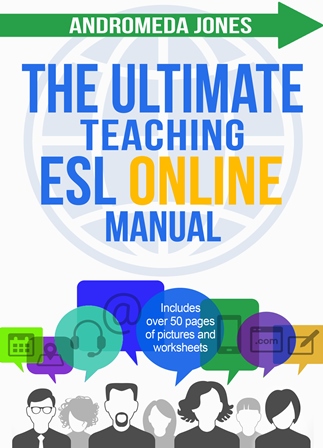With the emergence of ChatGPT and Google’s AI Overview, web visitors are in decline. Discover the impact on small ESL sites and why we should support the independent internet
Humans are no longer visiting websites like they used to. As we switch to ChatGPT to search for information, or read AI generated summaries in Google’s AI Overview, clicks on web links are in decline.
The consequence for information websites, in particular, has been devastating, with traffic to big sites like Investopedia cut by half in the last six months alone. But no one does this affect more than the creators of small, independent sites.
Thanks for reading TEFL Insider! Subscribe for free to receive new posts and support my work.
Back in the day (and I am talking just 10-15 years ago), teachers created ESL material sites as an extra income; sharing their knowledge in return for a little AdSense income or a book sale or two.
Now, after years of work, these sites are having their libraries scraped by AI bots to be repackaged into “handy” AI summaries. No credit given to the original author of the work. No visit to the site. No eyeballs on the AdSense ads the creator relied upon as a (often meagre) compensation for their work. All of it eaten and repurposed by AI software, funded for the gain of venture capital firms and a handful of billionaires.
The data is stark: According to the BBC, 25% of sites available in 2013 had shut down by 2023. And as AI search summaries become the norm, how many sites will disappear forever as they see their traffic dwindle to nothing?
As the internet is consolidated and corporatised into a few mega-sites, we remember the old ESL sites, written by small teams or a single author which contain a mine of information to learn teach and English, to understand grammar and to make us all better teachers.
We do not have to let the light go out on independent sites. Just as when you choose to buy fair trade food or ethically produced goods, if we make a conscious decision to scroll passed the AI summary and click on the webpages which generated them, we can help small sites cover their costs and keep the internet alive – at least a little longer.
With that said, here are some of my favourite independent sites to teach and learn English.
Grammar Girl
Grammar Girl (since migrated to Quick and Dirty Tips) was founded by Mignon Fogarty. It contained a wealth of information on English grammar and was voted Writer’s Digest’s 101 best websites for writers several times. The website still exists, in part, under the umbrella site Quick and Dirty Tips, with posts on the origins of expressions and quirks of English grammar.
Good Air Language
Founded and maintained by veteran online ESL teacher, Mike Veenstra, Good Air Language was, and I believe, still is the best place to discover online teaching sites to work for. Mike’s list covers companies in North America, Europe, China, Korea, Japan and more. Where possible he publishes salaries, terms and conditions and how to apply. The comments section at the bottom of the main page is also a mine of information on what it is like to work for these companies, as teachers share their experiences. Mike makes a small amount of money from all this work from AdSense, but if this huge archive of information has helped you in any way, you can buy him a coffee here to say thanks and help keep the site going.
Dave’s ESL Café
Way back before the advent of Google, Dave started teaching English abroad. He created Dave’s ESL Café as a forum where teachers could meet and share information on what it is like to teach in different countries and how to land a job. Years later, Dave’s ESL Café still exists and continues to be one of the best places to find a TEFL job in South East Asia. In addition, it also offers a free library of resources including lesson plans, idioms and quizzes.
Perfect English Grammar
One of the more professional-looking sites, Perfect English Grammar was created in 2007 by former English teacher Seonaid Beckwith to help her students. The site has grown and now offers paid courses to English learners. It still, however, offers free quizzes on dozens of grammar topics and is a great homework resource to give students to practice a grammar point. Link to the exercises below.
Grammar Monster
Grammar Monster was founded in 2003 by British Army officer Craig Shrives with content from a 15-page booklet he created to help his colleagues with their punctuation and sentence structure. It has since grown to become a library of information on spelling, punctuation, homonyms and more.
For those with students who like retro games, there is also an impressive list of word games with videogame characters.
So that’s my list. What small sites do you use for materials for your ESL classes? Share them in the comments and breathe new life into otherwise forgotten corners of the internet. Long live HUMAN creativity!





